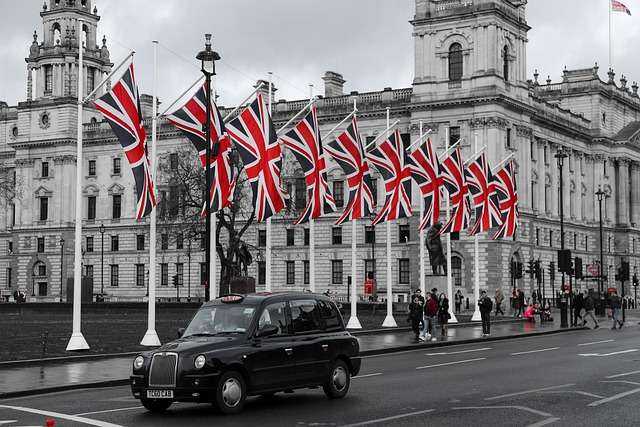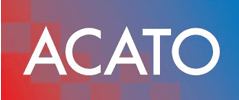Necessary ISO certifications for defense contracts in industry

The defense industry manufactures products that must meet specific requirements and endure extreme stress. Therefore, both manufacturers of military equipment and their suppliers must operate under very strict conditions. On this page, we explain which certifications are crucial for the defense industry to secure lucrative, long-term defense contracts. Our consultants have military expertise gained from serving in the militaries of various NATO countries. This enables us to understand the specific requirements for the manufacture and maintenance of military equipment. We support our clients during certification audits conducted by trusted certification bodies.
ISO certifications in defense
In the defense sector, quality, confidentiality, and security are the most important aspects of military equipment to ensure optimal protection and effectiveness for soldiers. ISO certifications certify management systems in many industries. In the area of military equipment and supplies, there are increased requirements for suppliers.
Quality management in defense (ISO 9001)
Because military equipment is exposed to the particular stresses of combat, it must meet significantly higher security requirements. This includes not only maintaining the secrecy of military information about the properties of the respective military equipment during production, but also adhering to specified quality parameters. Defense companies can only ensure this through a certified quality management system according to ISO 9001.
Environmental management in defense (ISO 14001)
The production of military equipment generates waste and pollutants. By systematically avoiding or reducing this unavoidable environmental impact, defense companies can significantly reduce their production costs. Government contracts are increasingly linking environmental aspects to multi-year supply contracts. To meet the contracting authorities’ requirements, companies in the defense industry must demonstrate ISO 14001 certification.
Information security in defense (ISO 27001)
Maintaining the confidentiality of military information is vital for defense suppliers. Therefore, defense companies take numerous physical and technical security measures. Nevertheless, major customers expect unbiased proof of information security through ISMS certification according to ISO 27001:2022.

AQAP NATO - Quality Assurance Requirements
To win contracts in the defense sector, companies must meet the strict quality assurance requirements of NATO AQAP (Allied Quality Assurance Publications). AQAP is therefore an important foundation of quality management for contracts with NATO allies. With AQAP certification, companies can market their products to NATO forces more effectively and efficiently. The NATO AQAP standard is a very helpful criterion in defense procurement for the British Armed Forces, or the US Department of Defense or the Pentagon.
What is AQAP?
With AQAP, NATO has developed uniform technical standards and guidelines. In this way, NATO standardizes its quality assurance in the arms and defense industry. AQAP provides a series of requirements and recommendations for the planning, development, production, maintenance and servicing of military equipment, systems and services. To guarantee joint defense capability, NATO partners must ensure uniform equipment and standards. For example, a supplier from one NATO partner can supply the armed forces of another partner with the necessary operating resources (e.g. fuel, ammunition, lubricants) for joint operations while at the same time ensuring that the equipment of the friendly troops is not damaged. NATO has thus achieved uniformity, efficiency and effectiveness in procurement and supply. The AQAPquality control processes improve interoperability in mixed units.
What does NATO’s AQAP regulate?
When concluding a contract, the procurement office of the armed forces of the respective NATO member refers to the requirements of the AQAP. This allows for the creation of a standardized contract that helps the alliance partner and the supplier work together more efficiently. Thus, the requirements of the AQAP become part of the contract. Depending on the quality risk and complexity, different AQAP guidelines are considered. These AQAPs are intended to reconcile different issues.
The following AQAPs must be considered when planning for future deliveries and AQAP certifications:
- AQAP 2110 contains the requirements of ISO 9001, which is supplemented by NATO supplementary provisions.
- AQAP 2131 specifies the procedures for final inspections and associated operational suitability tests.
- AQAP 2105 specifies the requirements for a contract-related quality management plan to be delivered by the contractor.
- AQAP 2210 supplements AQAP 2110 and 2310 with software-specific quality assurance requirements.
- AQAP 2310 is aimed at service providers (e.g., suppliers) involved in particularly complex projects in the aerospace and defense industries. This standard contains the requirements of EN 9100 and is supplemented by NATO supplementary provisions.

AQAP certification
Companies can demonstrate their compliance with AQAP standards through certification. The certification process is specifically tailored to NATO requirements. Independent testing bodies audit the respective company and, upon compliance with the testing guidelines, issue the coveted AQAP certificate. The certification body conducts its annual surveillance audits to ensure compliance with AQAP standards.
